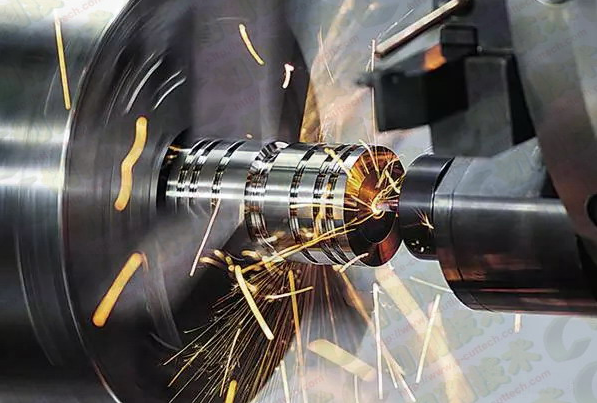What is Hard Turning | CNC Hard Turning Applications, Benefits and Everything You Should Know
With the rising use of diverse high strength and high hardness engineering materials in the modern processing industry, traditional CNC turning is difficult or incompetent to achieve the requirements or desired efficiency, which makes the hard turning process develop quickly. To better utilize it, we should understand what is hard turning and what are the applications, benefits, features, advantages and more about CNC hard turning.

What is Hard Turning?
Hard turning is the CNC turning process of hardened steel as the final machining or finishing process instead of the common grinding technology, generally defined as the turning harder than 45 HRC on a lathe or turning center. Hard turning process also refers to the cutting process of a single point for hardened pieces. The typical hardness is ranging from 58 to 70 HRC. In CNC hard turning, it is necessary to select a reasonable tool, blade shape, and geometric parameters to get the full performance of the cutting tool. The right material of hart turning cutters including coated carbide, ceramic, CBN, etc.
Related Read: What is Deburring Process & How to Deburr CNC Machined Parts
CNC Hard Turning Applications, Benefits and More
What are the CNC hard turning applications?
- Automotive industry: crankshaft, camshaft, transmission shaft, bearing, cutter and measuring tool, etc.
- Pump: industrial pump, ballast pump, etc.
- Electric industry, engineering machinery industry, aerospace industry and more.
- Rotables, rolling bars, etc.
What are the CNC Hard Turning Advantages - Why use Hard Turning Process?
1. High machining capability. Hard turning is easier to control the cutting amount and increase the chips removal amount, simultaneously cut the inner hole and the outer circle to complete the complex parts machining.
2. High processing efficiency and lower energy consumption. Hard turning often uses large cutting depths and high workpiece rotation speeds, and its metal removal rate is usually 3-4 times that of grinding, a variety of surface machining like grooving can be completed in a one-time clamping process, reduces much time for installations and auxiliary.
3. Safe and clean, reduce production costs. Hard turning does not require coolant in most situations. Actually, the coolant will bring adverse effects on tool life and surface quality, as the hard turning process is performed by the material of the shearing portion to anneal and soften, if the cooling rate is too high, the effect caused by the cutting force is weakened, then increases the mechanical wear and shorten the tool life. At the same time, the device-related to coolant can be omitted in hard turning, the production system will be simplified and production cost decreased, in addition, the chips are clean and easy to recycle.
4. Good machining accuracy and surface roughness of CNC turning parts. Most of the heat produced in hard turning is taken away by chips, which will not produce surface burns and cracks like grinding. It has excellent surface quality, accurate machining roundness and high position accuracy on machining surfaces.
5. Less equipment investment. For the same productivity, the lathe investment of hard turning is 1/3 to 1/2 of grinder, and the cost of its auxiliary system is also low. Small scale hard turning process does not need specific instruments.
6. Hard turning is more suitable for flexible production requirements.
Dajin Precision is a specialist in turning and hard turning machining for complex parts, whether you want to buy short or long turned parts or custom precision machined components, there are lots of benefits provided.
